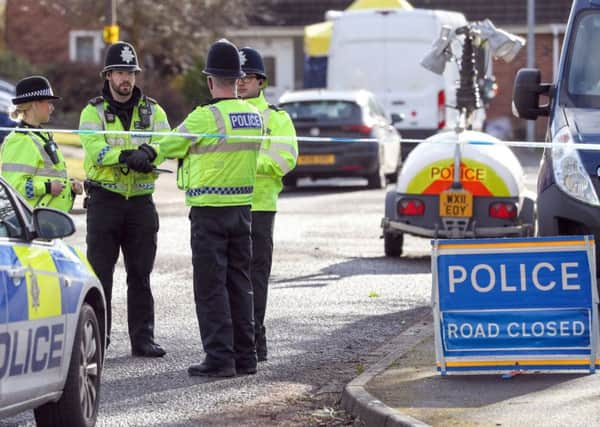Ex-Russian spy attack: Everything we know so far


- Mr Skripal, 66, was found along with his 33-year-old daughter on a bench in The Maltings in Salisbury, Wiltshire, after police were called by a concerned member of the public at around 4.15pm on Sunday. They are believed to have been in the city centre from 1.30pm.
- The pair, who did not have any visible injuries, were taken to Salisbury District Hospital, where they were treated in intensive care for “suspected exposure to an unknown substance”, which is now believed to have been a nerve agent.
Advertisement
Hide AdAdvertisement
Hide Ad- One of the first police officers to arrive is also said to be seriously ill in hospital, although Home Secretary Amber Rudd said on Thursday he is “talking and is engaging”.
- Officers “secured” a number of scenes - including the Zizzi restaurant in Castle Street and the Bishop’s Mill pub in The Maltings.
- Counter-terror police took over the investigation on Tuesday, due to the “unusual circumstances and the specialist expertise” of the officers, although it is not being treated as a terrorist incident.
- Assistant Commissioner Mark Rowley, the head of counter-terrorism policing, revealed on Wednesday that the incident was being treated as attempted murder and Mr Skripal and his daughter had been “targeted specifically”.
Advertisement
Hide AdAdvertisement
Hide Ad- Scotland Yard said scientific tests carried out by Government experts have identified the specific nerve agent, but have not released details of what it was or how it was administered.
- The Defence Science and Technology Laboratory in nearby Porton Down, which has state-of-the-art equipment to look for trace amounts of substances, is believed to have been involved in examining the substance.
- Hundreds of detectives, forensic officers and analysts are working on the case, and police are appealing for anyone who was in Salisbury city centre on Sunday to come forward to help with the “missing pieces”.
- An eyewitness told the BBC he saw Mr Skripal acting strangely in Zizzi, adding: “He started screaming. He just didn’t look right.”
Advertisement
Hide AdAdvertisement
Hide Ad- CCTV footage from a camera at Snap Fitness 24/7 gym emerged showing a man and a woman walking in the area moments before the pair were found.
- It remains unclear who is responsible for the poisoning, but the attack has stoked tensions between Britain and Russia amid suspicions of state responsibility.
- Foreign Secretary Boris Johnson went on the offensive in the House of Commons about the “disturbing incident”, noting that this case had “echoes” of the death of Alexander Litvinenko, a Russian dissident who was fatally poisoned in London in 2006.
- The Russian embassy said it was “completely untrue” to suggest the country’s special services were involved and criticised Mr Johnson for speaking “in such a manner as if the investigation was already over”.
Advertisement
Hide AdAdvertisement
Hide Ad- The Government called a meeting of its emergency committee Cobra on Wednesday, chaired by Ms Rudd. She has said police must respond to “evidence, not to rumour”.
- Mr Skripal was a double agent and was convicted in 2006 of passing state secrets to MI6 before being given refuge in the UK as part of a spy swap.
- The former colonel in Russian military intelligence was sentenced to 13 years in prison, and was among four convicts who were given pardons and one of two sent to Britain in 2010 in a deal that was said at the time to be the largest exchange since the Cold War.
